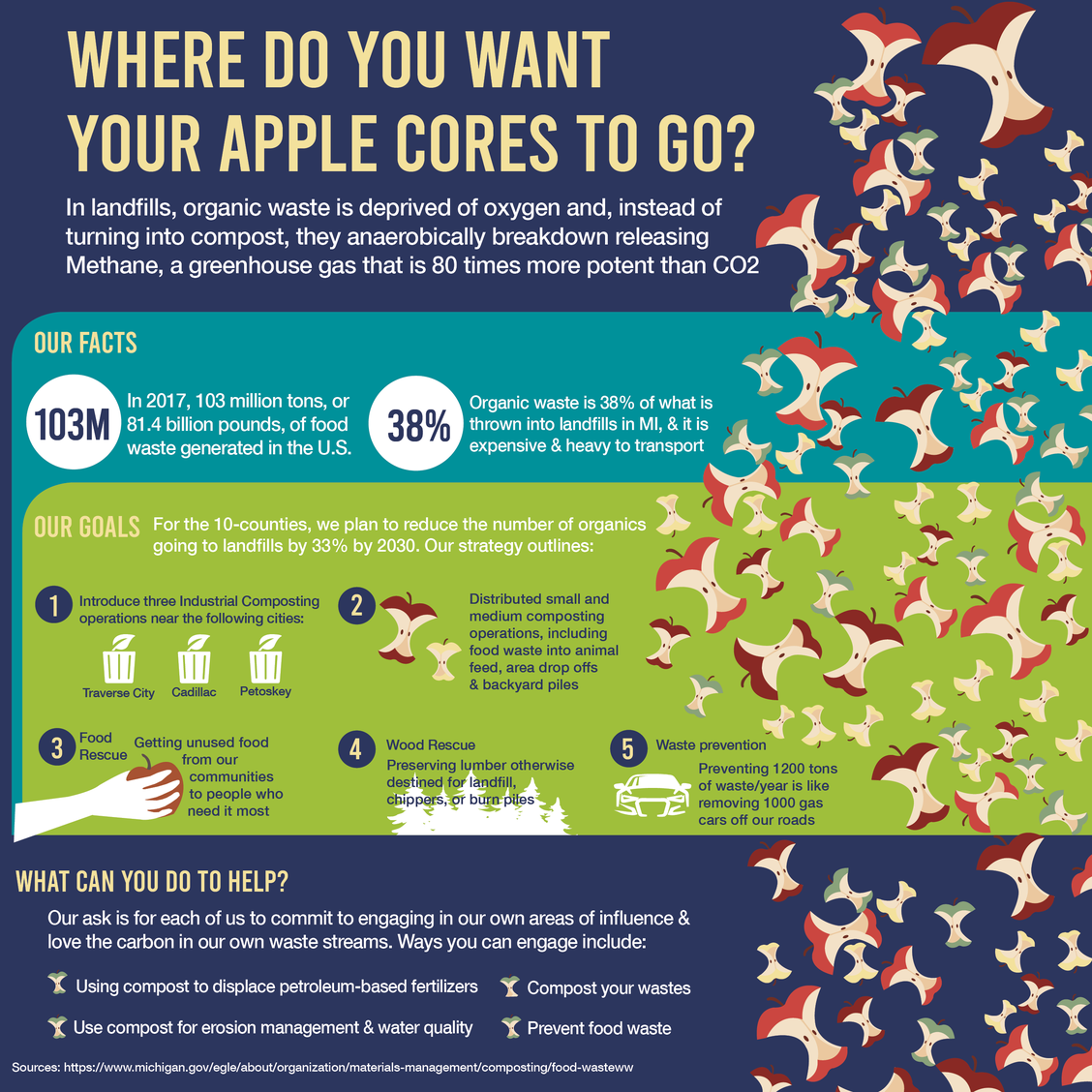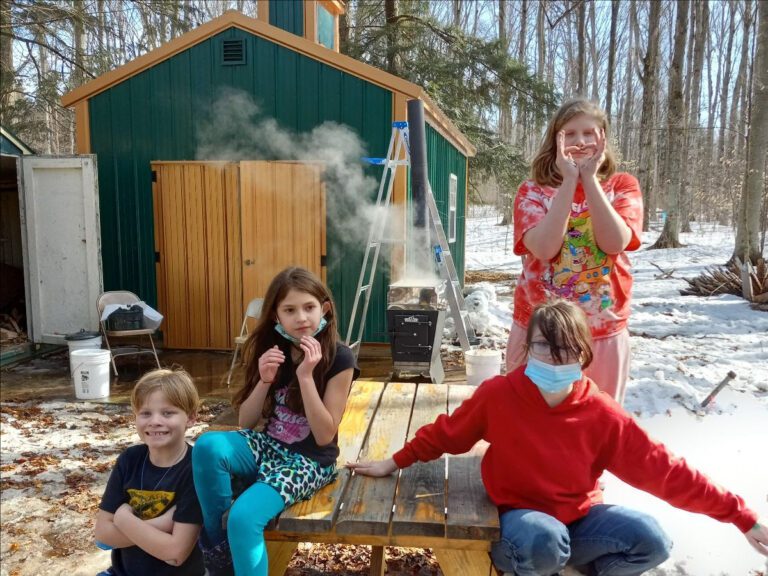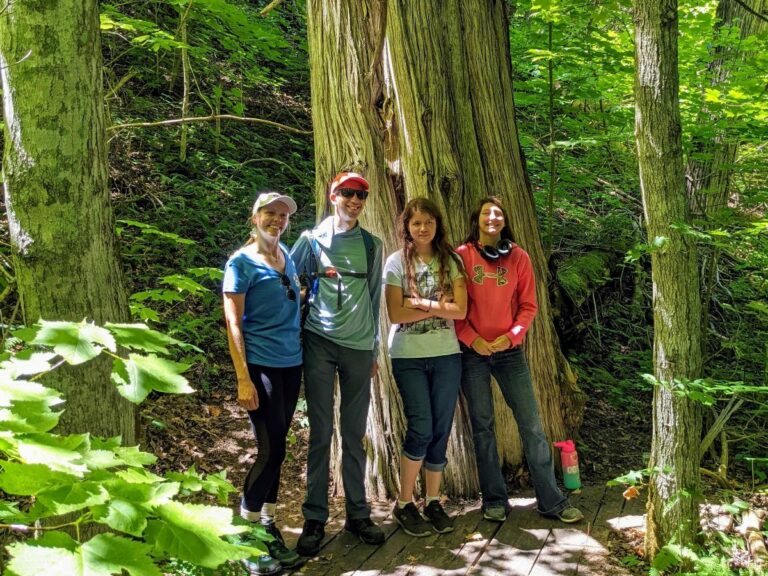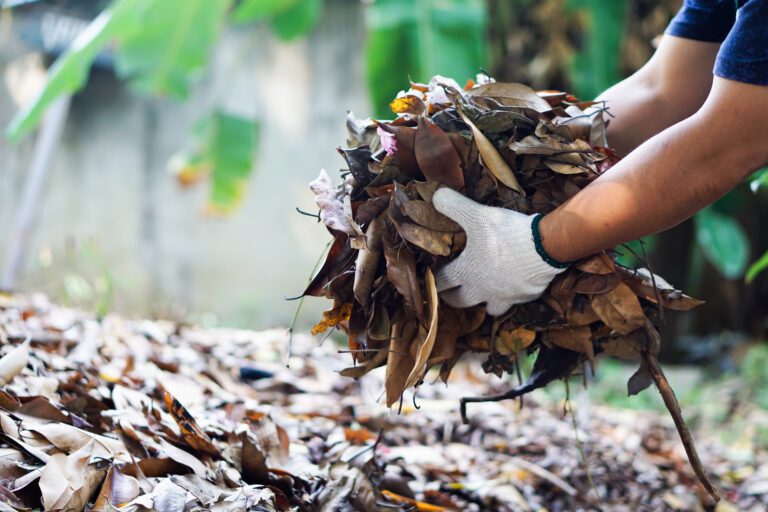Preventing waste. Improving soils. Reducing greenhouse gas emissions. Creating circular economies.
What do we mean by organics? These are any material that, given the proper circumstances, will decompose into soil. This includes yard waste and fall leaves, woody material from whole trees to some construction wastes, food waste, manures, and some paper.
Why do we care about organics? In Michigan, these materials make up 38% of what we put into landfills and organics going to landfills are a major problem because organics are:
-
The #1 cause of contamination for other recyclables
-
Heavy and expensive to haul around
-
Turning into methane, a greenhouse gas that is 80X more potent than CO2, when deprived of oxygen in landfills and anaerobically breakdown
We are actually excited about organics problems because they present such a great opportunity for practical, local solutions!
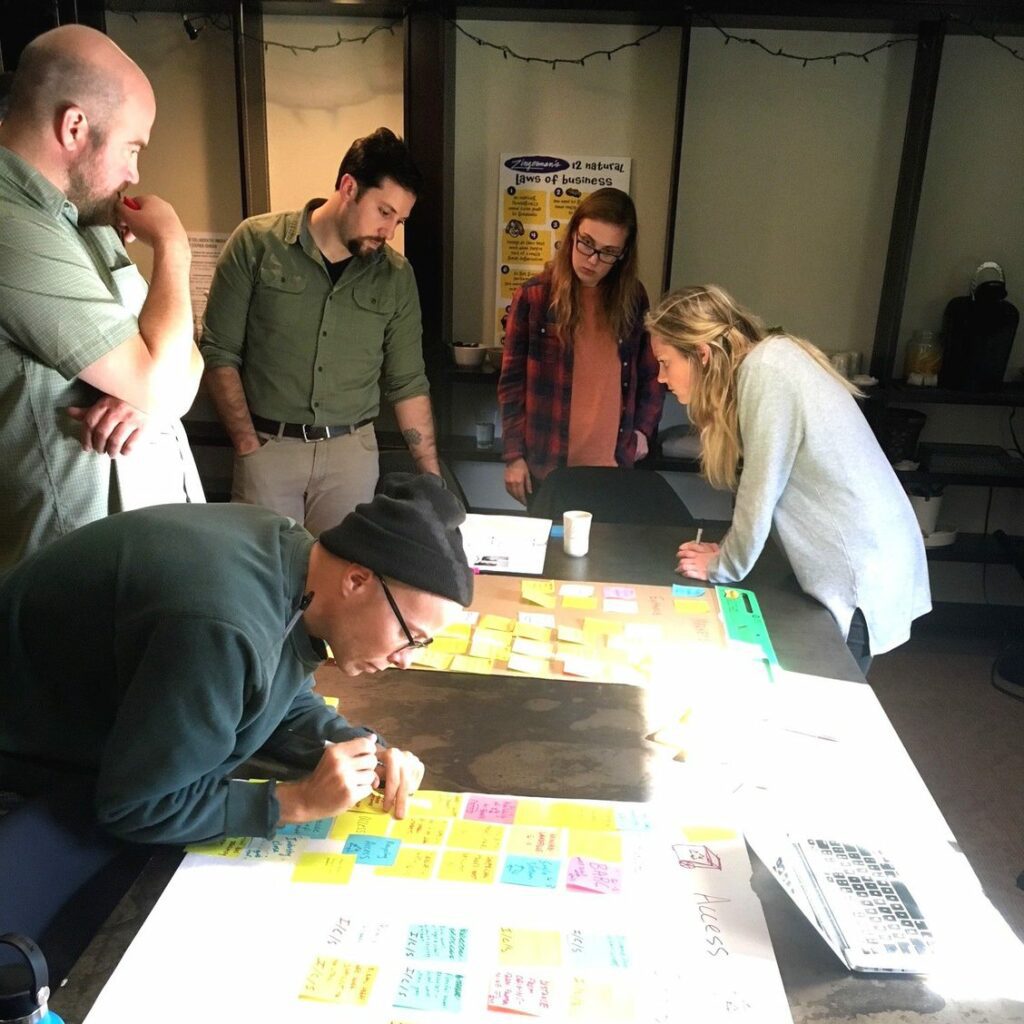
Rotary Charities awarded seed funding and our group became more focused and more formalized. In 2020-21, the MI Department of Energy, Great Lakes, & Energy funded a 10-county Market Assessment to benchmark our local organics flows and set future targets. Find this report in all its glorious detail on our website here!
Three months into 2023, we have formal agreements with three counties, three state-wide networks, several local businesses, and three funders including a two-year Rotary Systems Change Grant to help us accelerate regional efforts for organics diversion!
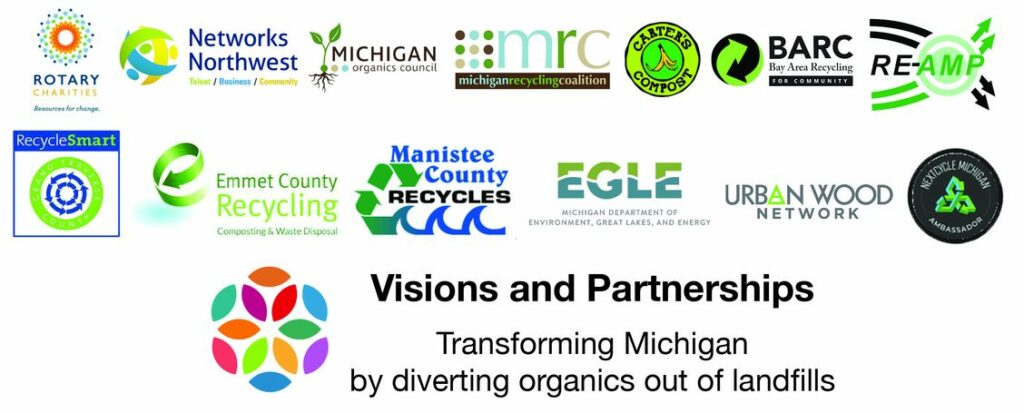
The 2030 targets:
The State of Michigan aims to reduce all landfill wastes by 45% by 2030. So our organics diversion target for these 10-counties is a 33% reduction by 2030. To get there, we have five tactics:
1. Waste Prevention, preventing waste is the very best thing we can do for the climate – and a strategy we all need to engage in! In the U.S. 80% of food waste is generated by household consumers.
2. Food Rescue, getting unused food to people in need.
3. Wood Rescue, preserving lumber otherwise destined for landfill, chippers, or burn piles.
4. Small and Medium Scale Processing, this includes turning food waste into animal feed, community drop offs, and even home composting.
5. Industrial Scale Composting, our market analysis suggested installing 3 aeratic static pile operations near Cadillac, Traverse City, and Petoskey, creating about a dozen permanent new jobs.
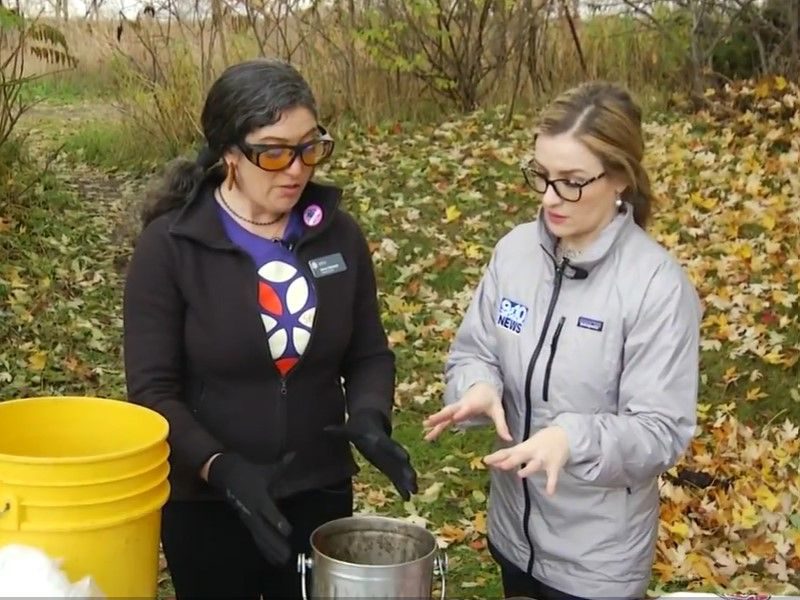
Above: SEEDS Executive Director Sarna Salzman explains the basics of composting to Melissa Smith of 9&10 News for their ‘Talking Trash’ series.
How can you engage?
We get it, it won’t be easy. It’s so convenient to simply throw stuff in the trash! That said, this is a problem that we all can do something about. Did you know that in the USA, 80% of the food that is wasted is wasted by households and consumers? That’s us, you and me!
Ways you can engage:
- Prevent food waste by not over-purchasing or over-cooking.
- Start composting at home! You can sign up for this workshop at Oryana on June 1st!
- Share a compost pile with friends or neighbors!
- Use compost while landscaping for erosion management and water quality
- Purchase SEEDS Wood Rescue products and support carpentry training for our EcoCorps members and sequester valuable carbon!
- Last but not least, let us know you are interested in learning more about this topic by joining our mailing list and join us May 4th at 5pm for a Soil Lovers Unite gathering at the City Opera House! Sign up for the list and event here.

